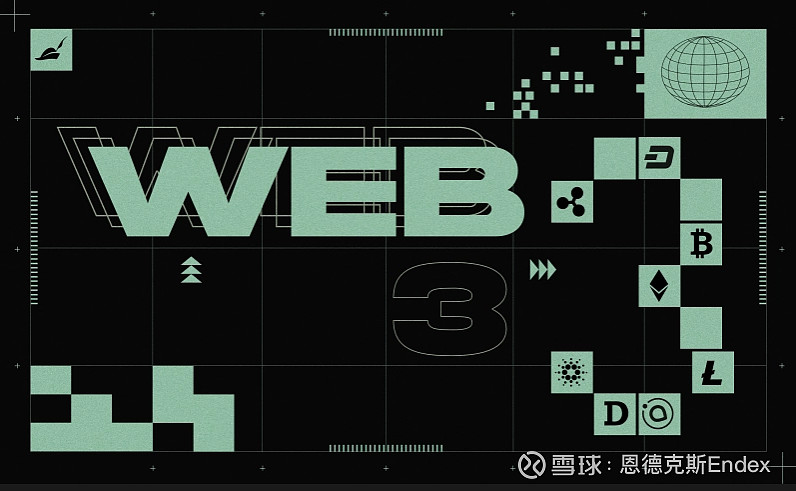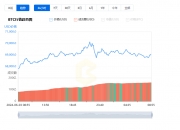

随着区块链、非同质化通证(Non-Fungible Token,NFT)、元宇宙等新技术概念的普及,Web3.0将会逐渐成为未来网络的主要形态,在全球互联网发展中扮演着重要角色。
With the spread of new technological concepts such as block chains, non-homogenesis (Non-Fungible Token, Web3.0之所以如此重要,其根源在于它是一场对于中心化数字生态的全局性变革,让流通于数字网络上的数字内容的所有权和对应的价值分配权,真正回到数字内容创作者手中:让创作者、价值拥有者实现统一。这种变革体现在三个方面。 Web3.0 is so important that it is based on a holistic change in the central digital ecology that allows ownership of digital content and the corresponding distribution of value rights that circulates on digital networks to truly return to the creators of digital content: the creators, the holders of values. This change is reflected in three ways. 首先,Web3.0将重塑用户与平台之间的“支配-依附”关系,形成一种新的数字身份体系。在Web2.0时代,中心化的平台对于储存在平台上的用户身份信息和数据信息有着绝对的控制权。而到了Web3.0时代,分布式数字身份(Decentralized ID,DID)使用户控制自己的身份管理信息成了可能,并可以用该信息验证并登录任何平台和程序。 First, Web3.0 will reshape the “dominant-dependent” relationship between the user and the platform, creating a new digital identity system. In the Web 2.0 era, the central platform has absolute control over the user identification and data information stored on the platform. Web3.0塑造了一个新的数字空间愿景,尝试构建一个用户和建造者共享产权的新型经济系统。其最大的特点就是去中心化理念,将原本属于互联网服务提供商的权力下放到用户手上。其表现为用户拥有他们的身份、数据和算法自主权,并且没有像Facebook这样的大平台负责储存和使用用户的数据,也不再需要通过账号和密码登录平台。 Web3.0 shapes a new vision of digital space that attempts to construct a new economic system where users and builders share property rights. Its greatest feature is the concept of decentralisation, which decentralises to users who belong to Internet service providers. It is expressed in the fact that users own their identity, data and algorithm autonomy and do not have a large platform like 信息安全,让他们掌握自己的数字身份、数据信息以及数字资产,也打破了平台对信息管理和算法的垄断,通过机制设计引导人们自发地协调行为,彻底改变用户与平台间的权利义务关系。这种去中心化的模式极大地挑战了平台的垄断地位,用户可以选择去中心化的替代产品。 Thus, Web3.0 not only enhances user privacy and 其次,Web3.0将重塑财富数字化与数字金融交易的规则体系,建立一套新的数字产权体系。在具体应用中,NFT,这种基于区块链用于确定数字资产产权的技术彻底颠覆了平台中心化的产权管理体系。用户可以自己制作并将NFT记录在区块链上,形成数字化资产的NFT。目前NFT已经被广泛应用于对图片、音乐、视频等数字产品以及各种UGC产品的产权保护和流转当中。 Second, Web3.0 will reshape the system of rules for the digitalization of wealth and digital financial transactions and create a new system of digital property rights. In specific applications, 而将去中心化的Web3.0概念和技术与金融业务具体相结合,产生“去中心化金融”(Decentralized Finance, DeFi),或将掀起金融业的变革。金融产品的交易信息将会更加透明和安全。在该场景下,用户的账户位于分布式的网络中,平台之间基于互信的协议可以减少藩篱,更加侧重于对产品服务、价值创新的追求,也降低了地理和用户资质等其他因素带来的限制,推动数字资产的自由流通。 Instead, the decentralized Web3.0 concept and technology, combined specifically with financial operations, will result in decentralized finance, or will trigger changes in the financial sector. Trade information on financial products will become more transparent and secure. In this scenario, users’ accounts are located in distributed networks, where agreements between platforms based on mutual trust can reduce barriers, focus more on the quest for product services, value innovation, and reduce the limitations imposed by other factors, such as geography and user qualifications, to facilitate the free flow of digital assets. 最后,Web3.0将重塑现实和数字空间经济社会活动的边界,推动实体与数字产业的融合发展。基于分布式账本技术,Web3.0通过全新的去中心化的DNS根域名治理体系,实现端到端访问过程的去中介化。用户可以自己命名和解析域名,技术可以运用到数字资产、数字实体等资源,使得现实和数字空间更好地融合。例如,可将链上数字资产和链下实物资产的价值形成对应。这样不仅能融合虚拟和现实世界,更能进一步重构各行各业的经济形态,实现现实、虚拟资产联动。 Finally, Web3.0 will reshape the boundaries of reality and the social activities of the digital space economy and promote the integration of entities into the digital industry. Based on distributed booking techniques, Web3.0 will deintermediate end-to-end access through a completely new decentralised DNS domain name governance system. Users can name and interpret domain names themselves, and technology can be applied to resources such as digital assets, digital entities, and so on, so that reality and digital space can be better integrated. For example, the value of digital assets and physical assets in the chain can be matched. 内容来源:新京智库 Source: Shinjing think tank
作者:刘典
author: Liu Sheng
注册有任何问题请添加 微信:MVIP619 拉你进入群

打开微信扫一扫
添加客服
进入交流群

















发表评论